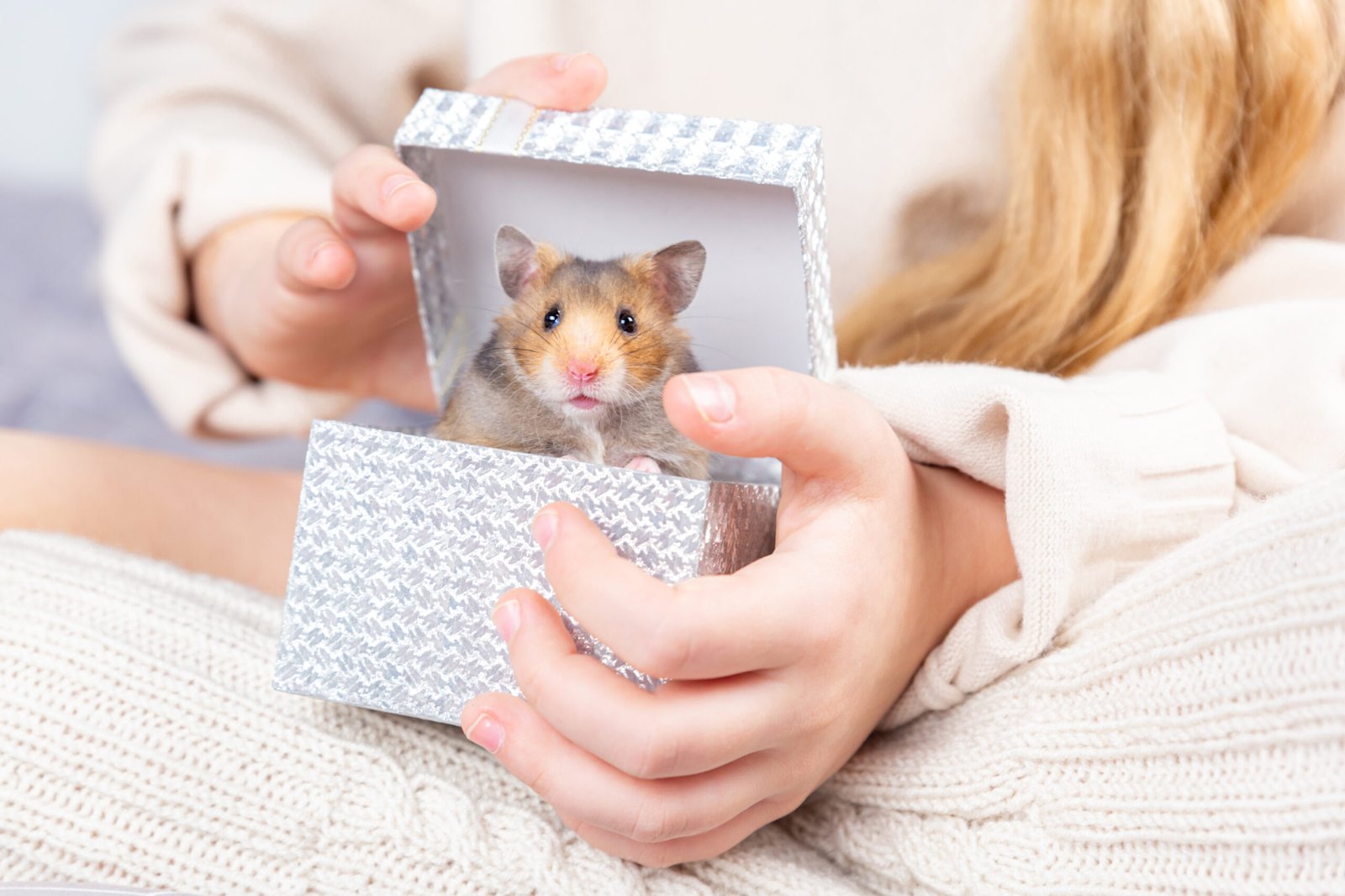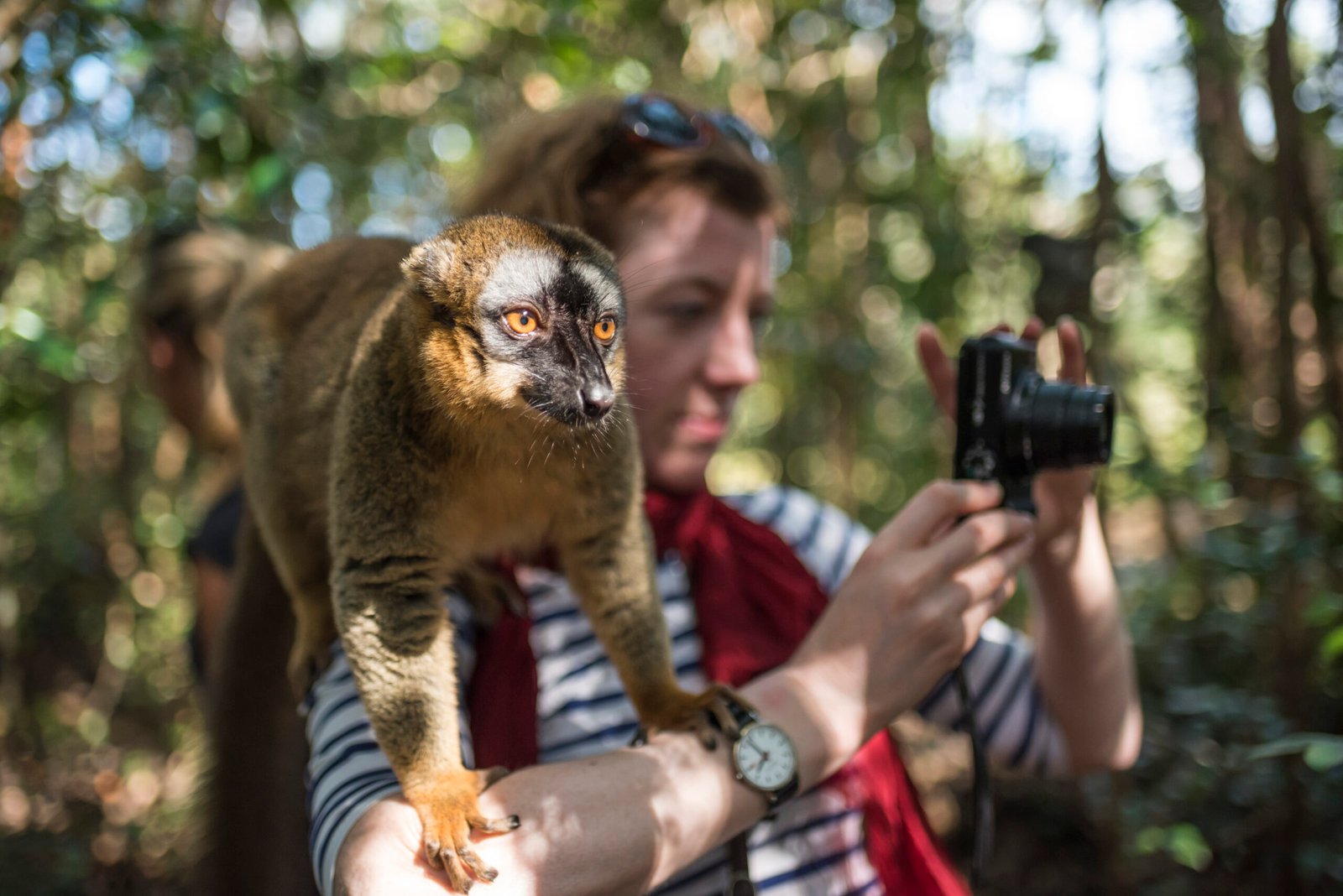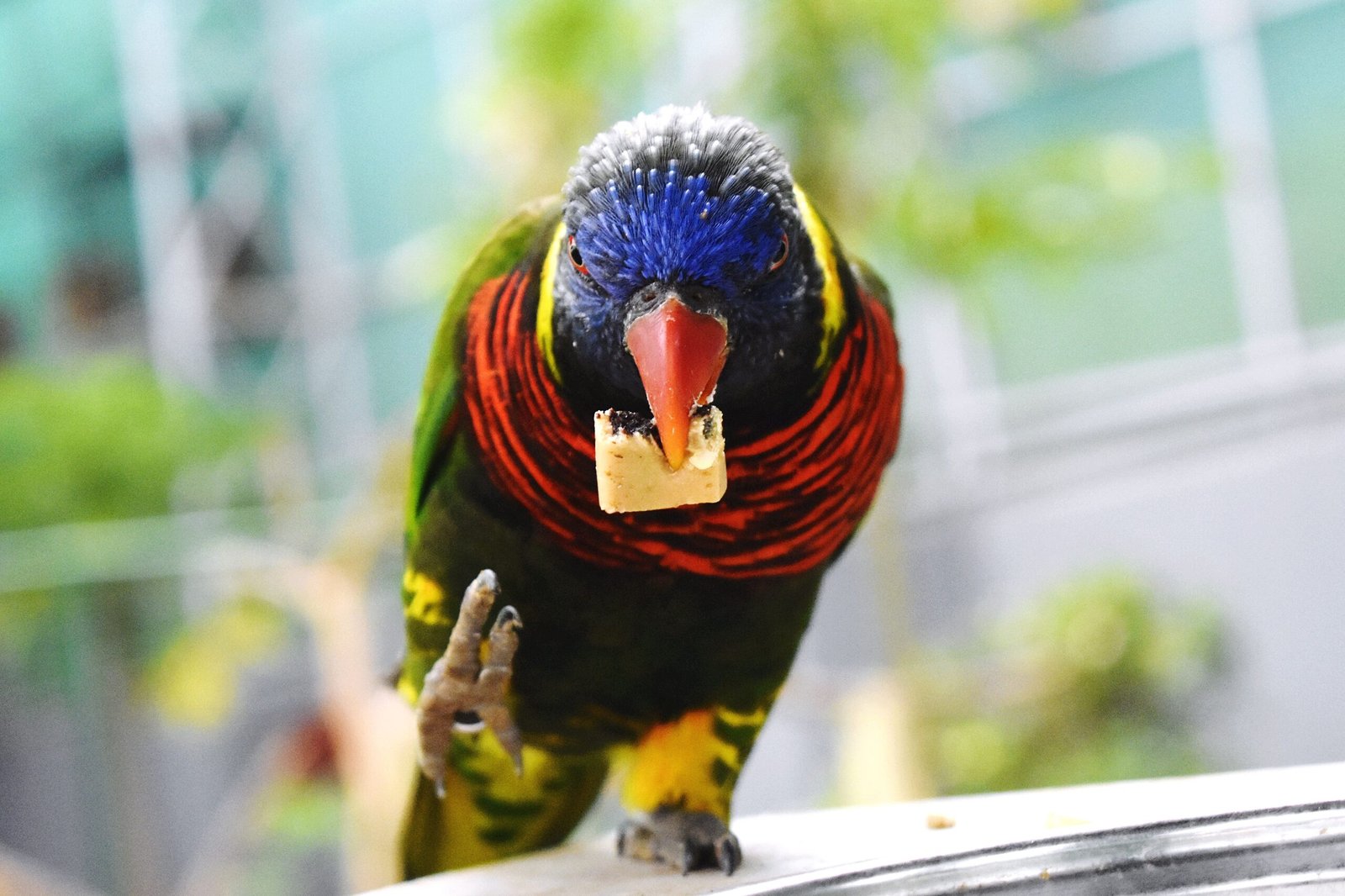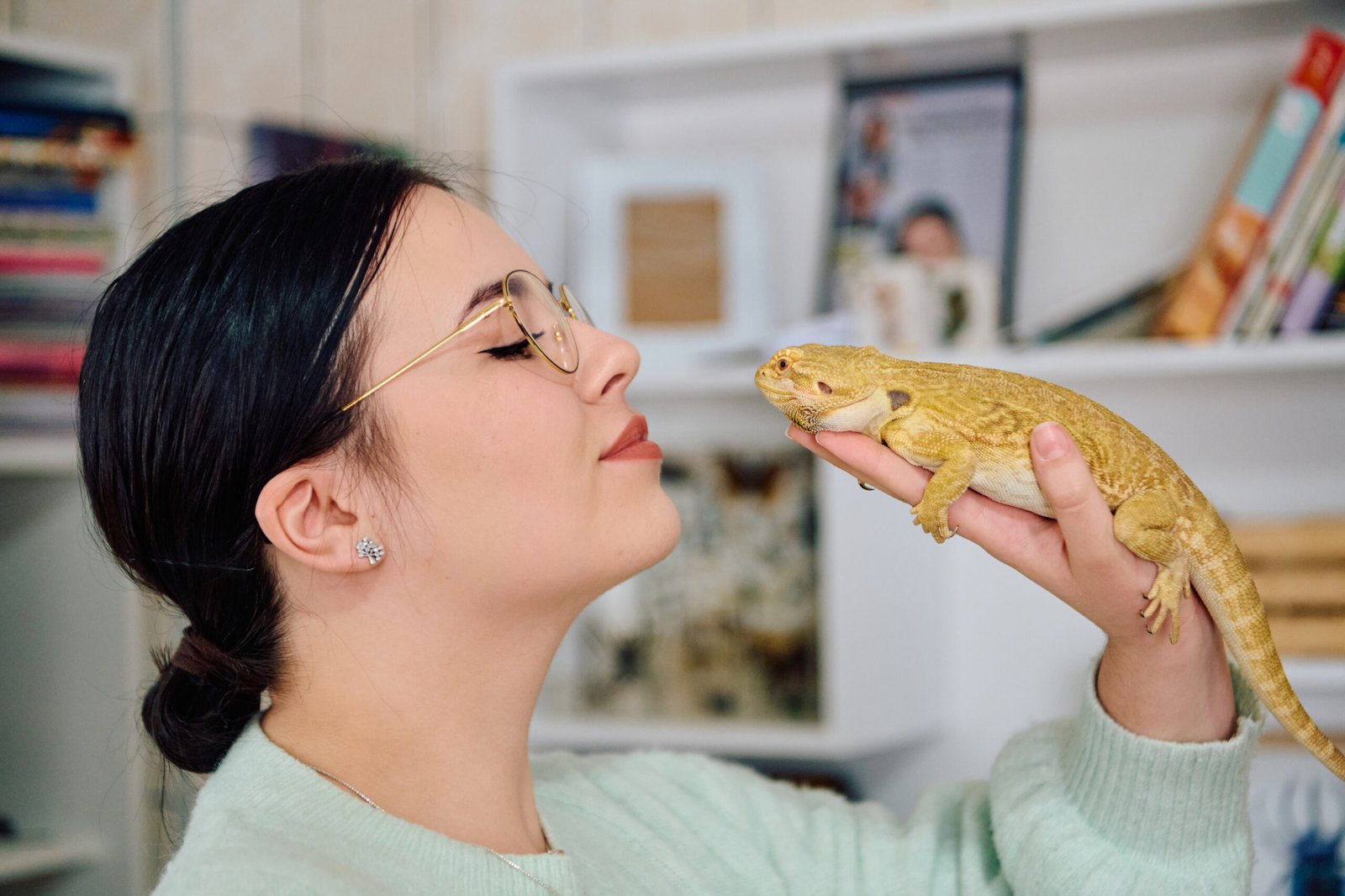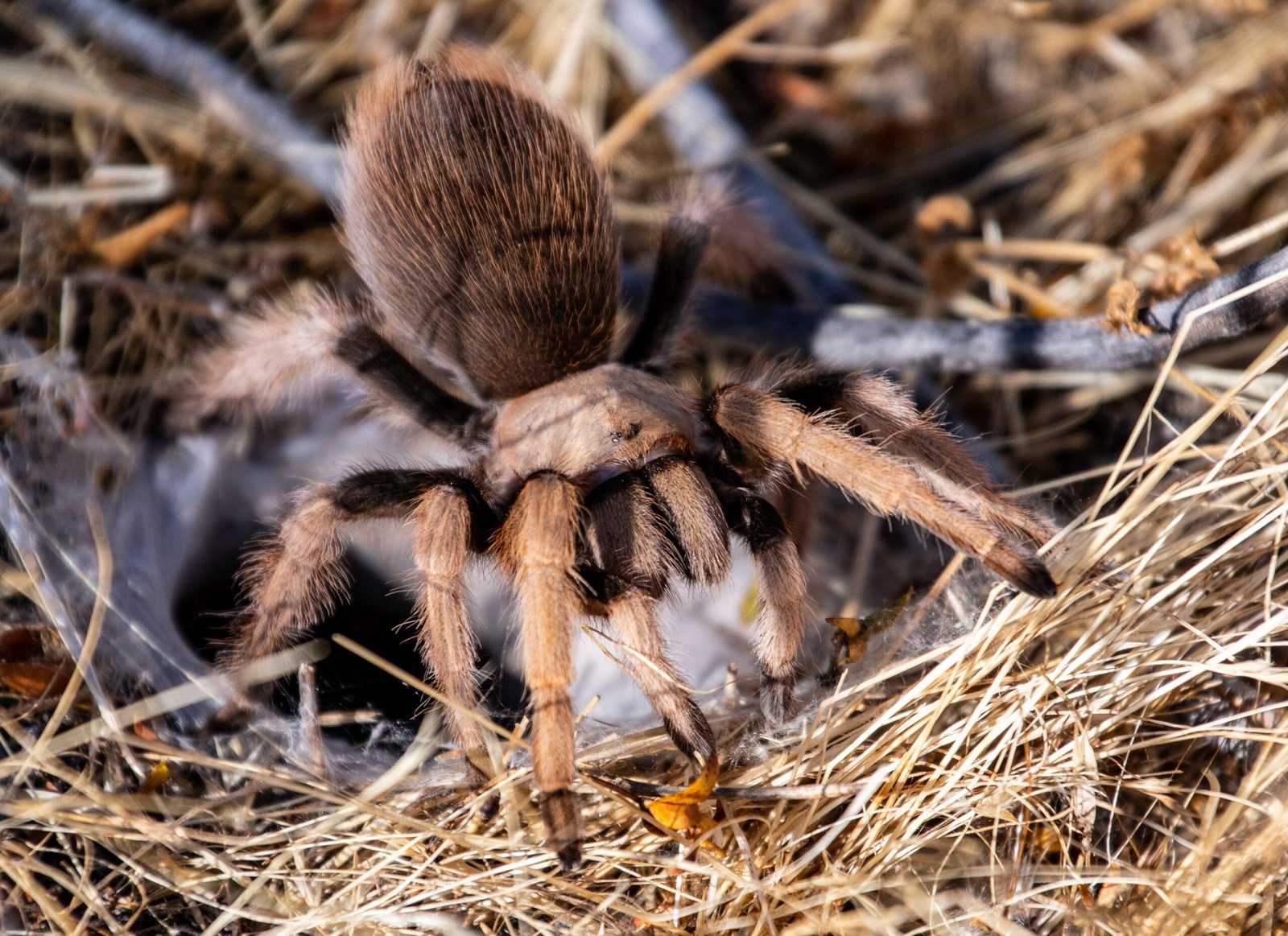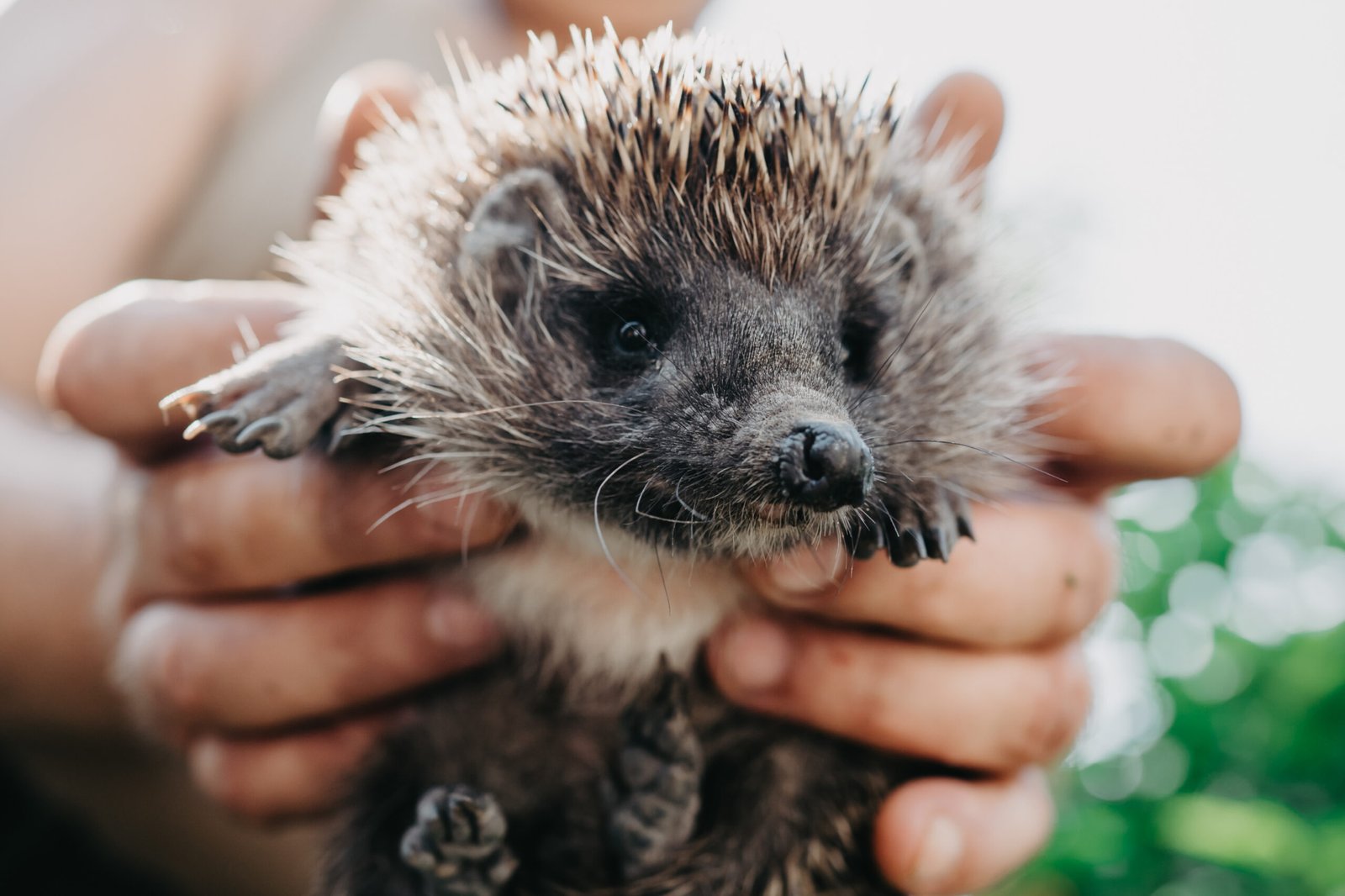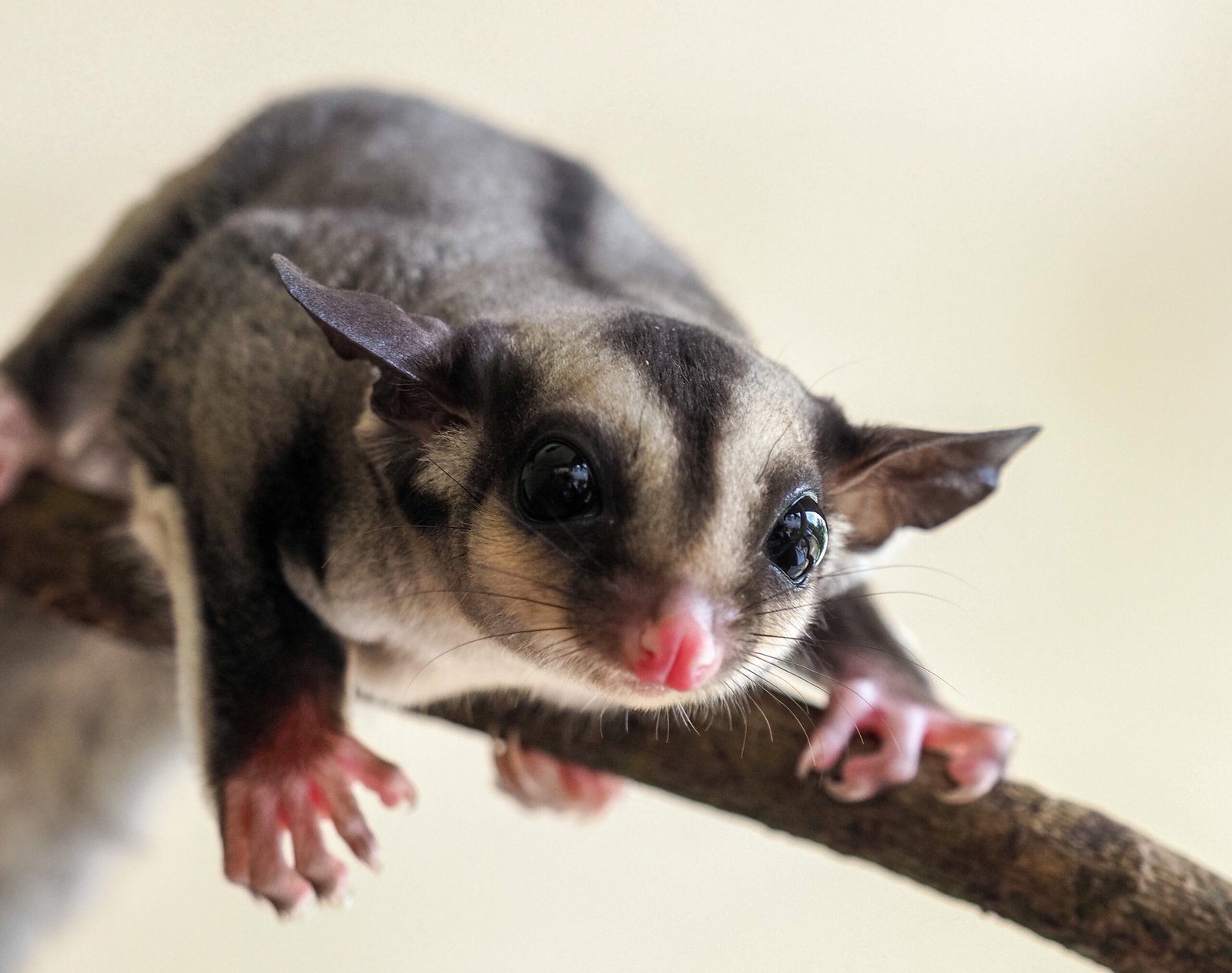Exotic pets have become increasingly popular, offering a unique companionship experience for pet owners. However, they bring with them a set of complex care requirements that are crucial to address. Keywords like “Common Health Issues in Exotic Pets and How to Prevent Them” highlight how essential it is for pet owners to understand the health risks these animals face. In this guide, we will explore various aspects of maintaining the health of exotic pets, ensuring that owners are well-equipped to prevent and manage potential health problems. Whether you own a parrot, a snake, or a rabbit, understanding these preventative measures can help ensure a long and healthy life for your unusual companion.
Common Exotic Pets and Their Signs of Illness
Exotic pets such as reptiles, birds, and small mammals are a delight to keep but require specialized care and vigilance to detect signs of illness early. These creatures often mask illnesses well, making it critical for owners to be observant and aware of subtle changes. Common indicators of health problems include changes in appetite, a sudden shift in behavior, lethargy, and physical alterations such as swelling or discoloration. Respiratory issues, gastrointestinal problems, and skin conditions are among the prevalent health concerns across many exotic species.
Ensuring regular veterinary visits and maintaining their environment within optimal parameters are preventative strategies crucial for keeping exotic pets healthy. Early detection and intervention can mean the difference between a minor health setback and a major health crisis. By understanding these risks and employing relevant preventative measures, owners can prolong their pets’ well-being and happiness.
– Monitor changes in eating and drinking habits.
– Observe alterations in behavior like increased aggression or isolation.
– Check for signs of lethargy, difficulty breathing, or skin changes.
– Schedule regular veterinary health checks.
– Maintain a stable, appropriate environment in terms of temperature and cleanliness.
Birds (Parrots, Canaries, Finches)
Parrots, canaries, and finches are captivating and lively additions to many households, yet they are prone to various health issues. Respiratory infections and nutritional deficiencies are notable concerns for these birds. Respiratory infections often stem from poor air quality and inadequate living conditions, while nutritional deficiencies generally result from diets lacking essential vitamins and minerals.
Maintaining a clean and stress-free environment, alongside regular vet check-ups, is vital in preventing illnesses. Bird owners should strive to provide a balanced diet rich in fruits, vegetables, and high-quality bird feed to ensure the birds’ nutritional needs are met. These efforts play a significant role in ensuring the ongoing health and vitality of these feathered friends.
– Provide a well-ventilated living space.
– Ensure a diet high in diverse fruits and vegetables.
– Incorporate high-quality seed mixes specifically for bird species.
– Schedule routine veterinary visits for health evaluations.
– Minimize potential stressors like loud noises and sudden changes in their habitats.
Reptiles (Snakes, Lizards, Turtles)
Snakes, lizards, and turtles are fascinating pets, each requiring specific care to maintain their health. Health issues like skin infections, respiratory illnesses, and metabolic bone disease frequently arise, often due to improper husbandry. It’s crucial to establish species-specific habitat conditions, including adequate temperature, humidity, and spatial requirements, to prevent stress-related health issues.
A balanced diet that caters to a reptile’s nutritional needs can avert common problems such as vitamin deficiencies and obesity. Consistent veterinary check-ups are essential for early disease detection and ensuring these reptiles’ growth and overall health. Observing behavioral changes can also provide important clues about their health status.
– Design habitats that meet the precise needs of the species.
– Maintain a diet tailored to each reptile’s specific nutritional requirements.
– Regularly visit veterinarians specializing in reptiles.
– Monitor changes like decreased appetite or unusual inactivity.
– Keep humidity and temperature consistent with natural environmental conditions.
Rodents (Hamsters, Guinea Pigs, Chinchillas)
Rodents such as hamsters, guinea pigs, and chinchillas are cherished for their cute and curious natures, yet they are susceptible to health issues like dental problems, respiratory infections, and digestive disorders. Keeping a clean and stress-free environment with proper ventilation is critical in mitigating respiratory concerns.
A diet rich in fiber, primarily from hay and fresh vegetables, is essential for preventing dental and digestive issues. Regular veterinary check-ups help identify potential health problems early. By monitoring changes in their appetite and behavior, owners can detect and address common ailments promptly.
– Ensure cages are clean and well-ventilated.
– Provide a constant supply of fresh hay and vegetables.
– Conduct regular examinations with a specialized vet.
– Pay attention to any alterations in the rodent’s eating habits or behavior.
– Maintain a quiet and stress-free environment.
Ferrets
Ferrets are playful and inquisitive pets but are prone to specific health concerns like adrenal gland disease and insulinoma. Regular vet check-ups are indispensable for monitoring these conditions and preventing any serious health issues. Ferret owners should be particularly vigilant about gastrointestinal blockages and make sure these agile pets have a safe play environment.
Vaccinations against canine distemper and rabies are crucial, as these diseases can be fatal. Maintaining a balanced diet abundant in protein and ensuring good dental hygiene can prevent nutritional and dental problems, encouraging a long and healthy life for ferrets.
– Be vigilant for symptoms indicative of adrenal disease and insulinoma.
– Crease a safe zone for play to avoid gastrointestinal blockages.
– Keep up-to-date with vaccinations.
– Provide a protein-rich diet tailored to ferrets’ dietary needs.
– Schedule frequent dental and health evaluations.
Fish (Goldfish, Betta, Tropical Fish)
Goldfish, bettas, and tropical fish can illuminate any home aquarium, but their health requires dedicated maintenance. Goldfish often suffer from swim bladder disease, while bettas are susceptible to fin rot, commonly due to tank conditions. Tropical fish frequently encounter ich, a parasitic disease controlled through quarantine procedures and stable water temperatures.
Preventing health problems involves regular tank maintenance, portion-controlled feeding to avoid overfeeding issues, and frequent water quality assessments. Creating a picture-perfect aquatic environment ensures that these beautiful creatures remain healthy and lively.
– Regularly clean and maintain fish tanks.
– Control fish food portions to prevent obesity and water pollution.
– Quarantine new fish to prevent disease spread.
– Monitor water quality and parameters like pH and temperature.
– Provide hidden spots and environments that mimic natural settings to reduce stress.
Rabbits
Rabbits are endearing pets known for their quiet nature and fluffiness, but they are not without health challenges. Dental issues arise from continually growing teeth that need regular wearing down through chewing hay. Gastrointestinal stasis is another common issue, often due to improper diet or stress.
These animals are also prone to respiratory infections, which can be prevented through good ventilation and hygiene. Regular veterinary appointments are crucial for early detection of these ailments. Proactively checking for parasites like fleas and mites also contributes to their overall health.
– Offer plenty of hay to support dental health.
– Maintain a stress-free atmosphere with sufficient exercise to avoid digestive problems.
– Ensure good ventilation to avoid respiratory illness.
– Regularly inspect for and treat parasites.
– Schedule consistent veterinary visits focused on rabbit health.
Common Health Issues in Exotic Pets and Preventative Measures
| 🐾 Pet Type | 🔍 Common Health Issues | 🏥 Preventative Actions | 🍃 Environmental Tips |
|---|---|---|---|
| Birds (Parrots, Canaries) | 🦠 Respiratory infections, 🍎 Nutritional deficiencies | Regular vet check-ups, balanced diet of fruits and high-quality seeds | Keep a clean, ventilated area; reduce stress factors like loud noises |
| Reptiles (Snakes, Lizards) | 🐍 Skin infections, 🦴 Metabolic bone disease | Specialized diet with calcium and vitamins, frequent health exams | Ensure correct humidity, temperature, and lighting in habitats |
| Rodents (Hamsters, Chinchillas) | 🦷 Dental issues, 🌬️ Respiratory infections | Regular access to hay and fiber-rich foods, annual vet visits | Clean cages frequently, provide adequate ventilation |
| Ferrets | 🧬 Adrenal disease, 🚫 Gastrointestinal blockages | High-protein diet, vaccinations, regular dental check-ups | Design a safe play area; watch for signs of blockages |
| Fish (Goldfish, Betta) | 🐠 Swim bladder disease, 🦠 Ich | Controlled feeding, water quality checks, quarantine for new fish | Maintain consistent tank conditions with suitable pH and temperature |
| Rabbits | 🐰 Gastrointestinal stasis, 🦷 Dental issues | Fiber-rich diet (hay), reduce stress with regular exercise | Ventilated housing to prevent respiratory problems; routine vet visits |
What are some common health issues that exotic pets face?
Exotic pets, owing to their unique requirements, often face common health issues such as nutritional deficiencies, respiratory infections, and parasite infestations. Inadequate diets emerge as the primary cause of nutrient-related problems, significantly affecting an animal’s health. Respiratory infections mostly arise from inappropriate humidity and ventilation conditions, creating pathways for bacteria and fungi to thrive.
Parasite infestations are another concern, whether internal or external, and pose significant risks if not managed properly. Many exotic pets also suffer from stress-related health problems due to inadequate environmental enrichment or improper handling. Preventing zoonotic diseases, which can be passed between animals and humans, is imperative, requiring meticulous hygiene practices.
– Regularly evaluate and adjust diets to prevent deficiencies.
– Ensure optimal humidity and airflow in the pet environment.
– Employ preventive measures against parasites, like regular treatments.
– Create enriching environments to reduce stress-related problems.
– Maintain rigorous hygiene to avoid zoonotic disease transmission.
How can I identify if my exotic pet is unwell?
Recognizing the signs of illness in exotic pets is crucial for timely intervention. Owners should monitor their pets’ behavior for unusual patterns, such as lethargy, aggression, or withdrawal, which may signify underlying health issues. Likewise, eating and drinking habits provide important clues; any decrease could indicate illness.
Physical examinations can also reveal changes such as weight loss, abnormal discharge, or variations in skin and fur condition. Respiratory symptoms like wheezing or labored breathing may indicate infections requiring immediate attention. Regular veterinary check-ups play an essential role in flagging early warning signs and securing professional guidance if concerns arise.
– Track any behavioral changes like lethargy or aggression.
– Note shifts in appetite or water intake.
– Conduct regular visual inspections for physical changes.
– Be attentive to respiratory symptoms.
– Prioritize routine vet visits for professional evaluations.
What are the best practices for preventing health problems in exotic pets?
Maintaining good health in exotic pets involves adhering to several best practices, starting with providing a balanced and species-appropriate diet that meets all nutritional needs. Keeping their habitat clean and mimicking a natural environment helps reduce stress levels, preventing various diseases. Regular veterinary check-ups conducted by specialists in exotic animals can catch potential problems before they escalate.
Educating oneself on the specific health needs and behavioral patterns of the pet species is indispensable for recognizing signs of illness quickly and effectively. Executing preventative healthcare measures, including vaccinations and parasite control, further ensures these unique pets remain healthy and content.
– Tailor diets to the pet’s specific species requirements.
– Regularly clean and maintain habitats in line with natural settings.
– Schedule frequent vet visits with exotic animal specialists.
– Educate yourself about species-specific health indicators.
– Implement regular vaccinations and preventive parasite treatments.
How often should I take my exotic pet for a veterinary check-up?
For optimum care, exotic pets require at least one veterinary check-up annually, though more frequent visits might be necessary depending on the species and health condition. These appointments are crucial for early detection of potential health problems and for managing unique requirements effectively.
Owners should observe any changes in their pets’ behavior and physical condition between visits to provide critical information to the veterinarian when needed. Specialized exotic pet veterinarians are recommended, as they can deliver tailored advice and care specifically meant for these distinct species.
– Schedule at least one yearly veterinary appointment.
– Increase the frequency of visits based on species and health conditions.
– Monitor behavior and physical health closely between check-ups.
– Choose veterinarians experienced with exotic pets for thorough examinations.
– Be proactive in sharing any observations during vet visits.
Are there specific dietary requirements for different types of exotic pets to keep them healthy?
Exotic pets exhibit unique dietary requirements that must be met to maintain optimal health. Each type of exotic pet has particular nutritional needs that can differ greatly between species, influencing their overall well-being. Meeting these requirements is essential to prevent health issues such as obesity, malnutrition, or specific deficiency-related conditions.
Many exotic pets might require specialized diets involving live prey, particular vegetation, or dietary supplements. Consulting with a veterinarian who specializes in exotic animals is key in crafting suitable feeding plans. Regularly assessing and adjusting the diet as the pet ages or as health conditions change can further forestall health complications.
– Understand the unique dietary needs specific to each species.
– Engage in dialogue with exotic animal veterinarians to develop nutritional plans.
– Provide special foods, including live prey or specific plant types, where applicable.
– Regularly reassess diets to ensure they fit health and age requirements.
– Use supplements as advised by professionals to maintain health.
Exotic pets require thoughtful and informed care to navigate the challenges associated with their health needs. By understanding these common issues and implementing preventative strategies, pet owners can provide a nurturing and safe environment, ensuring their exotic pets thrive in their care.
In conclusion, understanding and addressing the common health issues in exotic pets is crucial for ensuring their well-being and longevity. Exotic pets, with their unique dietary and environmental needs, require meticulous care and regular health check-ups. Pet owners must educate themselves on the specific requirements and potential health risks associated with their chosen exotic pet. By creating a suitable habitat, providing a balanced diet, and seeking veterinary care from professionals experienced with exotic animals, many health issues can be prevented or promptly addressed. Awareness and proactive management are key to maintaining the health of your exotic pet, allowing you to enjoy many happy years together. Prioritizing their health not only enhances their quality of life but also fosters a deeper bond between pet and owner. Remember, preventing health issues through informed care is far better than treating them after they arise.
